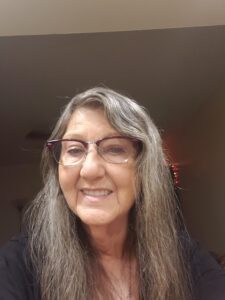Let’s start at the beginning of my long journey. My name is Laura, and around fifteen years ago, I was diagnosed with type-2 diabetes and prescribed medication to control it. I was doing well, but then in November of 2017, I received the news everyone dreads to hear: “You have cancer.” The cancer was on my right lung, and I had to have surgery to remove one of my lobes. They also found some cancer in my lymph nodes. The surgery was successful, but I had to undergo chemotherapy, which wreaked havoc on my organs. I have been in remission for six years, but unfortunately, this was not the end of my journey.
I was later diagnosed with NASH (Nonalcoholic Steatohepatitis) liver disease and chronic kidney disease (CKD), a condition where the kidneys are damaged and cannot effectively filter blood, leading to a buildup of waste and fluid in the body. It’s a progressive disease that gets worse over time and can eventually lead to kidney failure if left untreated.
In 2022, I was told I would need dialysis, as well as a liver and kidney transplant, which was terrifying to hear. While on dialysis, I began to get weaker and weaker, unable to do much as my health declined rapidly. I began the process of getting on the transplant lists for both a kidney and liver, which took me eight months of testing, countless specialist visits, and a few procedures to get approved. Finally, on June 10th, 2023, I was officially placed on both transplant lists.
Just a few weeks later, on June 28th, 2023, I was getting ready to go out to lunch with my daughter for my birthday when, at 11 a.m., I received a call from the University of Cincinnati transplant team. They told me they had a liver and kidney match for me, explaining that the donor liver was infected with Hepatitis B and C and that I could refuse it and stay on the list. They also assured me that Hepatitis C was curable and that Hepatitis B could remain undetectable with a daily dose of medicine. Knowing I would need to take daily anti-rejection medicines for the rest of my life anyway, I discussed it with my children and decided to accept. By 8 p.m., I was in surgery receiving my transplants. What an incredible birthday gift.
This was not the end of my story. After spending several days in the hospital, I was released and went to my daughter’s home, where we made weekly trips to the transplant clinic for blood work and follow-ups with the transplant doctors. I stayed with her for a few months, dealing with a few hospital admissions due to infections, but eventually, I was able to go home. My son lives with me, so I was only alone when he was working, which was usually while I was sleeping since he works for a package delivery company.
Even after going home, I was still very weak and feeling sick, with more hospital admissions along the way. I couldn’t take more than a few steps without sitting down, and one day in March, on my way to the bathroom, I blacked out, fell, and broke my leg, ankle, and foot. Luckily, the breaks were clean and didn’t require surgery, but I felt so down because I wasn’t feeling better even though it had been eight months since the transplant. I wondered, “Why did I do this to myself?” Slowly but surely, I started to see progress. I was able to walk to my kitchen without having to sit down, it no longer took me three days to recover from a doctor’s visit, and I could do small tasks like a load of laundry or making lunch for myself. By June of 2024, I was feeling much better.
Now it has been 22 months since my transplants, and I can do more than I have been able to do in ten years. I cannot express how grateful I am, first to my donor’s family and second to the transplant team at the University of Cincinnati, which is one of the best in the country.
The reason I am sharing my story is because organ donation saved my life. It is so important, no matter your age, to consider donating because you could save many lives. It is easy to register as an organ donor through your state’s registry, often via your driver’s license or online, or through the National Donate Life Registry. After your death, your family may also authorize donation if you haven’t previously registered.

Original author Laura Summerville is a type-2 diabetic, lung cancer survivor, and a liver and kidney transplant recipient. She is also the mother of 2 children, and worked as a Process Analyst for an IT company before retiring early due to her health. She shares her story in hopes of raising awareness of organ donations to others.
If you or someone you know are interested in sharing your patient story, learn how to get involved with Patient Worthy here!


